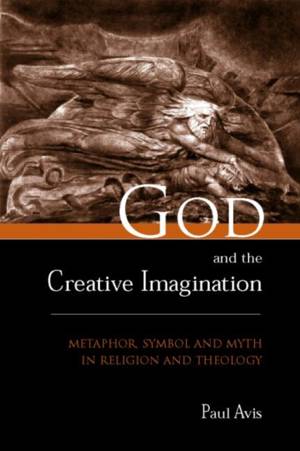
- Afhalen na 1 uur in een winkel met voorraad
- Gratis thuislevering in België vanaf € 30
- Ruim aanbod met 7 miljoen producten
- Afhalen na 1 uur in een winkel met voorraad
- Gratis thuislevering in België vanaf € 30
- Ruim aanbod met 7 miljoen producten
God and the Creative Imagination
Metaphor, Symbol and Myth in Religion and Theology
Paul AvisOmschrijving
'A mere metaphor', 'only symbolic', 'just a myth' - these tell tale phrases reveal how figurative language has been cheapened and devalued in our modern and postmodern culture. In God and the Creative Imagination, Paul Avis argues the contrary: we see that actually, metaphor, symbol and myth, are the key to a real knowledge of God and the sacred. Avis examines what he calls an alternative tradition, stemming from the Romantic poets Blake, Wordsworth and Keats and drawing on the thought of Cleridge and Newman, and experience in both modern philosophy and science.
God and the Creative Imagination intriguingly draws on a number of non-theological disciplines, from literature to philosophy of science, to show us that God is appropriately likened to an artist or poet and that the greatest truths are expressed in an imaginative form.
Anyone wishing to further their understanding of God, belief and the imagination will find this an inspiring work.
Alleen bij Standaard Boekhandel
Beoordelingen
We publiceren alleen reviews die voldoen aan de voorwaarden voor reviews. Bekijk onze voorwaarden voor reviews.












